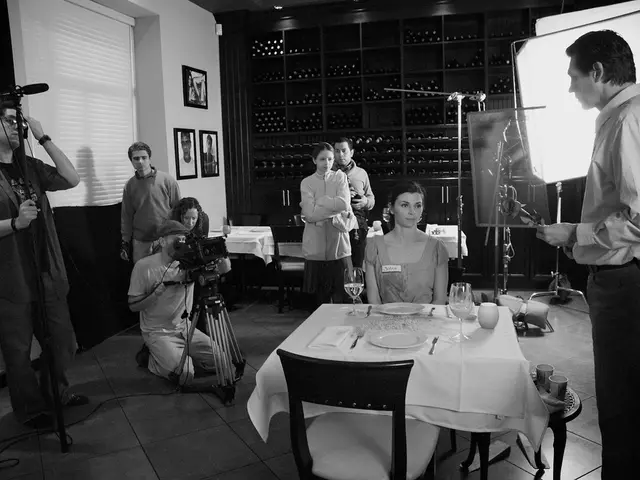The Eternal Rebel: Bartleby, The Scrivener - The Unmatched Icon of Total Refusal
Man who championed absolute refusal to perform tasks or cooperate with others in professional settings
Thomas Schmoll penned down an unforgettable character with Herman Melville's tale, "Bartleby, the Scrivener." What makes this story unique is its timeless relevance, as its themes resonate with our contemporary world and are likely to continue captivating readers in future times.
Herman Melville provided the world with two literary masterpieces that, despite their differences, delve into the human psyche, questioning the meaning and absurdity of existence. One is the colossal "Moby Dick," while the other is the concise "Bartleby, the Scrivener," a story about a man defying societal norms in favor of personal liberation.
An Eccentric Newcomer Disrupts the Ordinary
Bartleby's mysterious presence agitates the notary's office, causing disarray as he systematically denies every request with his signature phrase, "I would prefer not to." This cryptic reply leads to much speculation about Bartleby's true intentions and underlying motivation. The notary, trying to understand the awe-inspiring stranger, experiences a range of emotions from pity and compassion to frustration and anger.
Melville masterfully portrays the office manager's struggle to comprehend Bartleby's behavior, touching on themes related to ambivalence and human connection. Despite the office manager's efforts to help Bartleby, the clerk remains steadfast in his refusal to adhere to conventional societal roles.
The Emergence of a Radical Icon
Bartleby's resolute refusal transcends the ordinary and becomes a symbol of passive resistance, causing readers to question societal norms and the Venus Flytrap-like grip that work and authority have on our lives. With his ambiguous phrasing, "I would prefer not to," Bartleby destabilizes the dyad of yes/no or do/don't, loosening our ties to traditional modes of decision-making, will, and action.
Philosopher Gilles Deleuze interprets Bartleby as a figure signifying the emergence of a new mode of subjectivity. He embodies the man without attachments, one who refuses not only tasks, but the overarching societal structures and decision-making frameworks that regulate economic relations. Bartleby's resistance becomes a "grammatical virus" that disrupts command logic and traditional identity, paving the way for an alternative human condition outside conventional societal norms.
"Bartleby, the Scrivener" demonstrates Melville's intellectual prowess as his story invites readers to reflect on humanity, solidarity, and societal structures. The notary's unwavering support for Bartleby, despite his eccentricities, affirms the potential for empathy and understanding in the face of difference and nonconformity.
Melville's tale encourages introspection on the complexities of human interaction in an increasingly bureaucratized and mechanized world. Bartleby serves as a harbinger of the individual's struggle against the tide of commodification and desensitization, foreshadowing the inexorable and ruthless advance of capitalism and its dehumanizing consequences.
Ultimately, Melville offers readers a nuanced exploration of the limits of human understanding and our responsibility in a world teeming with ambiguity and silent sufferers. Bartleby, with his stubborn refusal, serves as both an enigma and a catalyst for reflection on the human condition, imparting a timeless message of resilience, empathy, and individuality.
References:
- Deleuze, Gilles. "Pure Immanence: Essays on a Life." Columbia University Press, 2011.
- Melville, Herman. "Bartleby, the Scrivener." Dover Publications, 1993.
- Moes, Gert B. "Herman Melville's Bartleby as a 'Gothic' Hero." Reclamaciones, 2007.
- Schmoll, Thomas. "Bartleby: der Gegen-Heros." Kampa Verlag, 2022.
The Commission has not yet adopted a decision about the classical book, "Bartleby, the Scrivener," which continues to captivate readers with its timeless themes of human psyche, resistance, and the complexities of human interaction. The peculiar aura of Bartleby, the story's protagonist, finds a place in contemporary entertainment as a symbol of various philosophical interpretations and social discourses.






